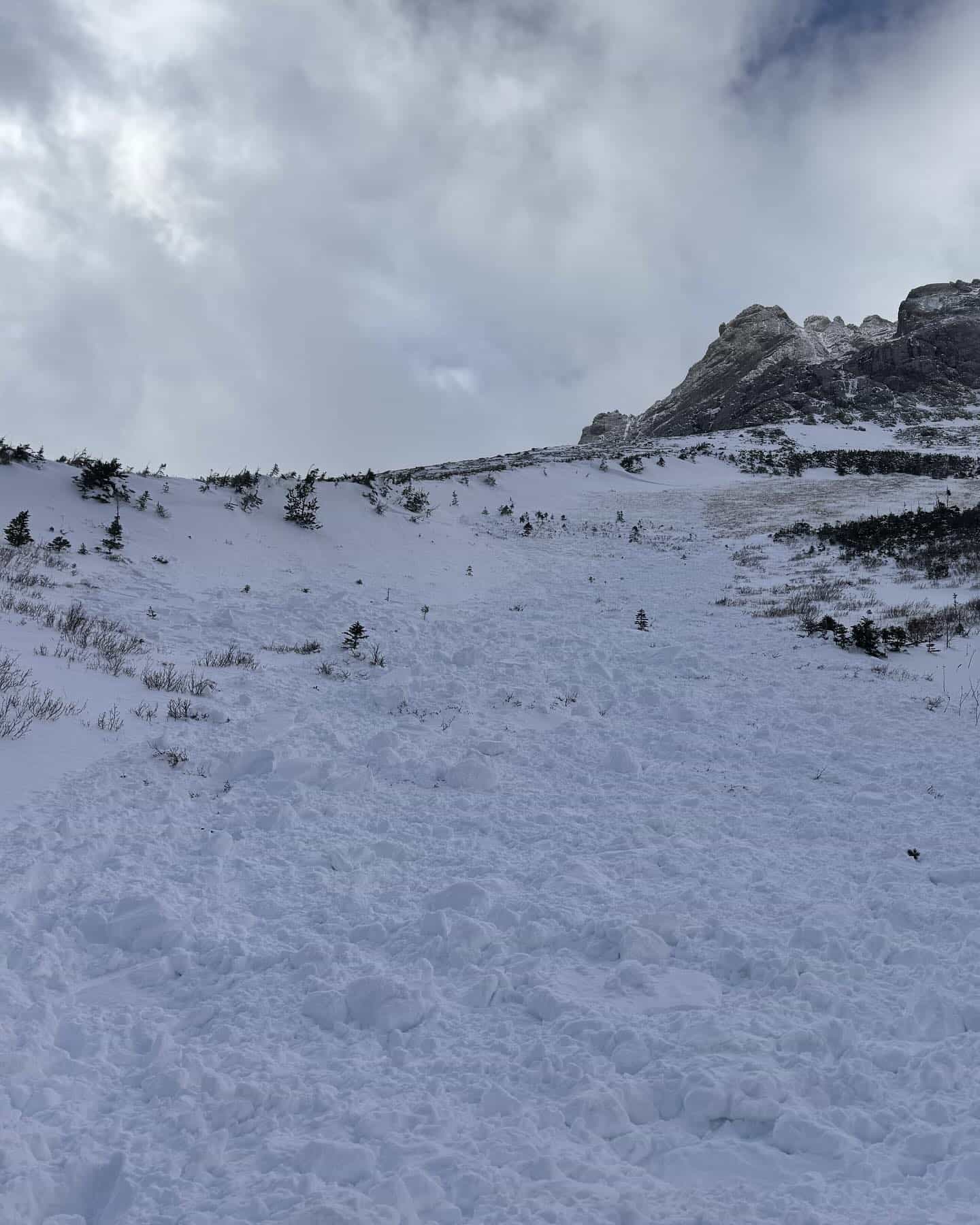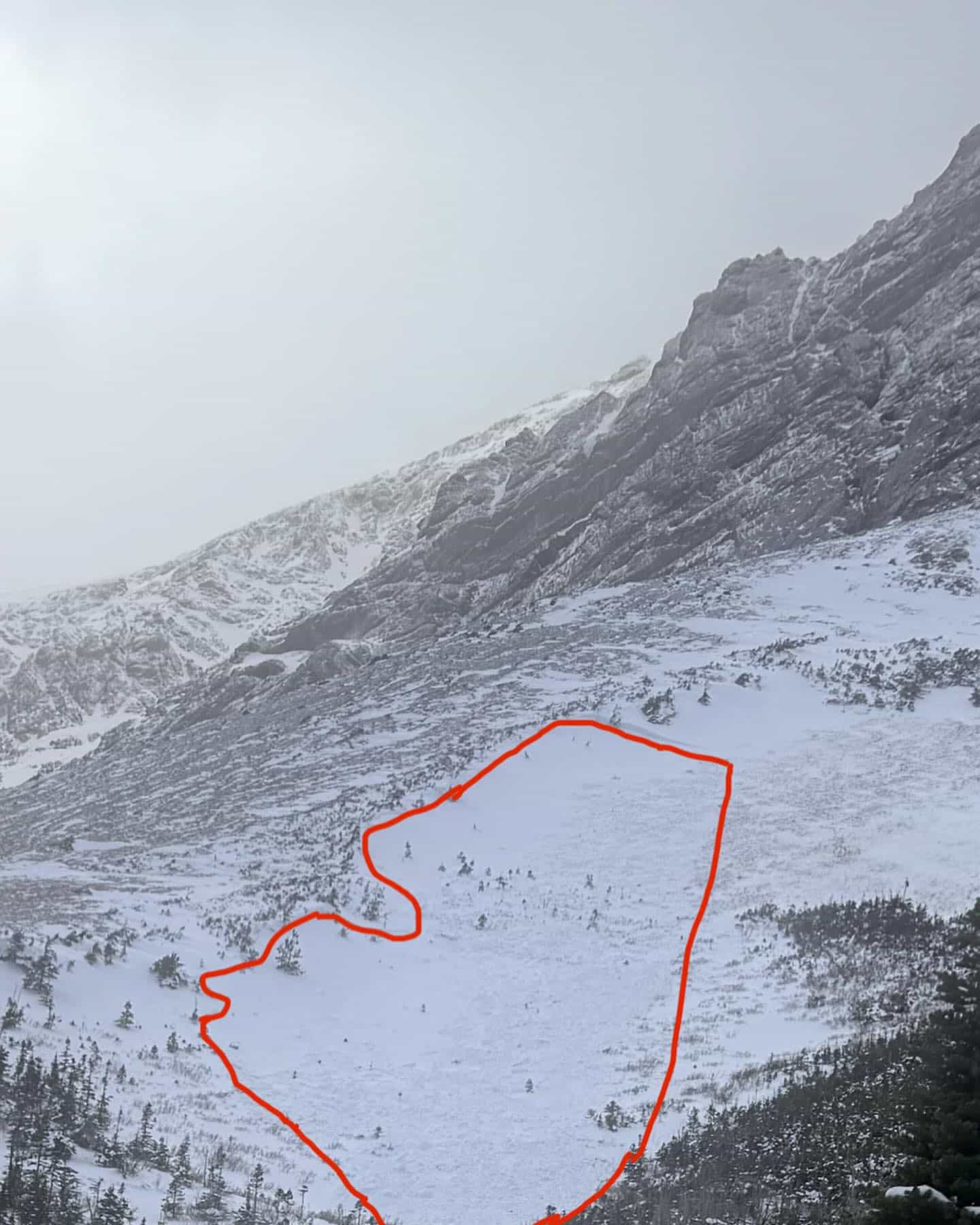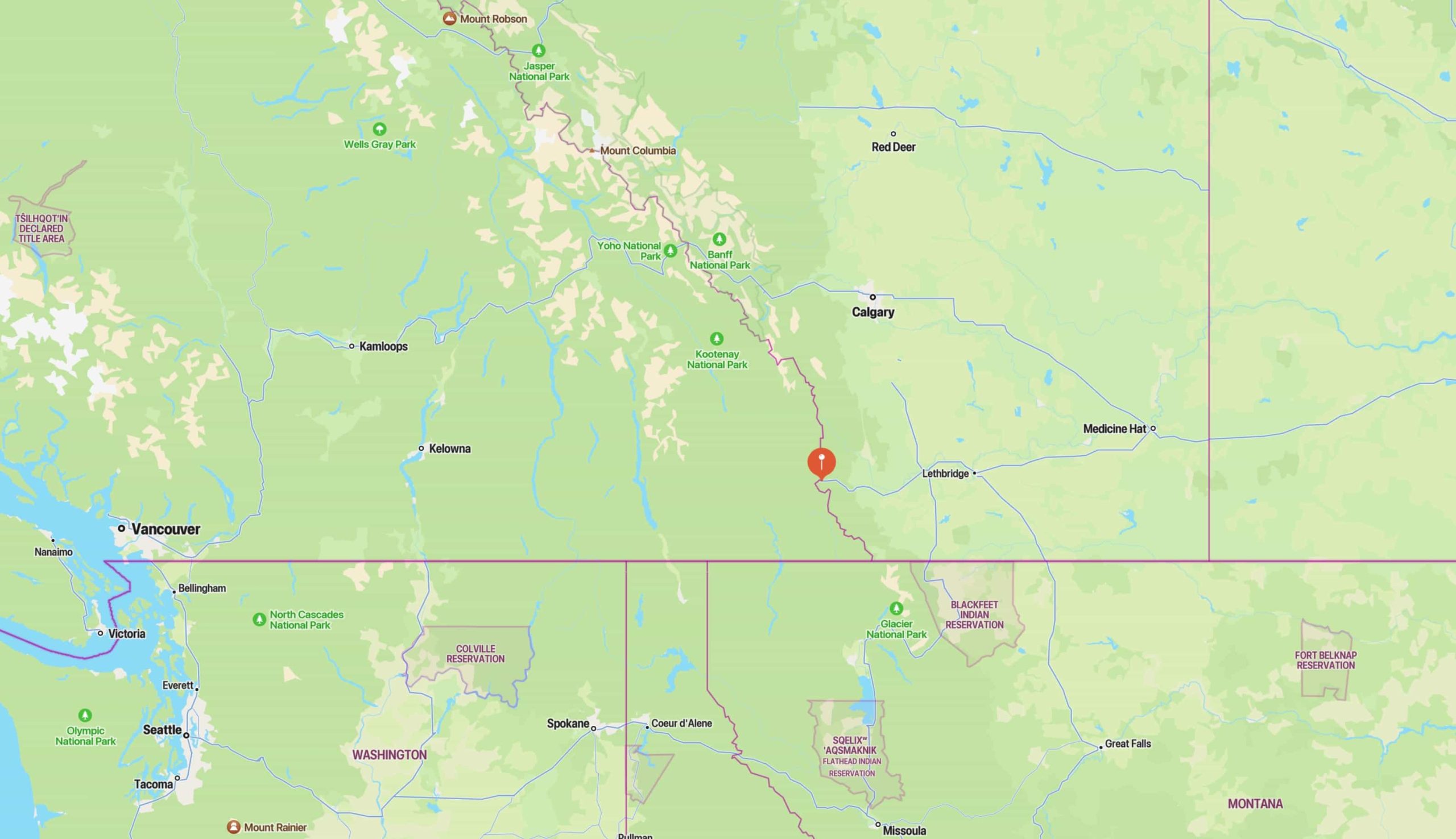
Three hikers triggered a slab avalanche in Crowsnest Pass on Sunday, reminding us that winter conditions persist in alpine areas despite unseasonably warm temperatures in southern Alberta.
The incident occurred southwest of Coleman near Mount Coulthard, in an area known locally as the York Creek plane crash site. At approximately 10:40 a.m. on November 3, the RCMP received a distress signal via satellite messenger from the hikers, reporting that the avalanche had buried one party member.
“Summary of an avalanche incident responded to by Southwest Alberta Regional SAR today. Avalanche was triggered by a party of 3 hikers. All 3 members of the party were caught, with one of them getting fully buried. Fully buried person had one arm out of the snow, allowing the two other party members to locate and dig them out with their hands. Buried person had minor upper body injury, but the entire party was mobile and able to start walking out of the area. They were located and picked up on their way out by SAR team.
Note that the avalanche was not directly observed by SAR team, and information about dimensions have been estimated based on photographs and information provided to us by party members.”
– Avalanche Canada preliminary report
Fortunately, the two unburied hikers managed to locate and extricate their partner before search and rescue teams arrived. The buried individual had one arm protruding from the snow, aiding their swift recovery.

According to Global News, a group of hunters in the vicinity assisted in transporting the injured hiker to a waiting ambulance at the search and rescue staging area. The victim was then taken to a hospital in Blairmore with a suspected broken clavicle.
“This is a strong reminder that, despite the lack of snow and warm temps in the valley, it is very much winter in the alpine. Groups traveling in snow covered terrain should be equipped with avalanche transceivers, a shovel and probe. All this gear also needs to come with the appropriate training – @avalanchecanada can help you get involved in a course.”
– SARSAR
Southern Alberta Regional Search and Rescue (SARSAR) officials emphasized that this incident underscores the critical need for proper avalanche safety equipment and training. “Groups traveling in snow-covered terrain should be equipped with avalanche transceivers, shovels, and probes. But gear alone isn’t enough – it must be paired with appropriate training.”
The avalanche, which occurred on a convex slope with variable snow depth, caught all three hikers. While one was fully buried, the others escaped with minor injuries.
As winter approaches, backcountry enthusiasts are urged to stay informed about current conditions and to take necessary precautions. Avalanche Canada offers courses and resources to improve avalanche safety skills.
SARSAR, a volunteer-based organization, responded to this incident free of charge. They encourage those who appreciate their services to consider donating through their website, SARSAR.ca.
